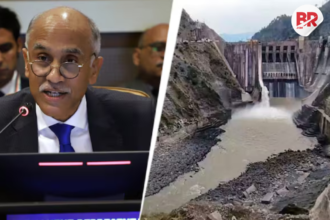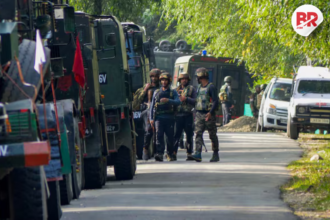
Indus Strategy in Action: India Suspends Treaty, Halts Water Flow to Pakistan
India has formally suspended the Indus Waters Treaty (IWT) of 1960, launching a powerful three-step Indus Strategy to block the river’s flow into Pakistan. This decisive move came just days after a brutal terror attack in Pahalgam, carried out by Pakistan-based operatives.

What does this mean for the common Indian?
In simple terms: not a single drop of our water will irrigate enemy fields anymore. India will now utilize every bit of its rightful share under the treaty — a long-overdue exercise of sovereignty, many say.
A Nationalist Shift: From Compliance to Control
The Indus Waters Treaty, brokered by the World Bank, had for over six decades allowed Pakistan control of the Indus, Jhelum, and Chenab rivers — nearly 80% of the total Indus system water flow. India was left with the eastern rivers: Ravi, Beas, and Sutlej. Yet, even within the limits of the treaty, India had left much of its rightful allocation untapped.
Now, that era of restraint is over.
The Three-Step Indus Strategy
India’s Indus Strategy focuses on one goal: zero wastage, zero leakage to Pakistan. It includes:
- Short-Term: Divert all Indus basin water within India’s territory, even temporarily, while reviewing long-term engineering options.
- Mid-Term: Upgrade dam infrastructure to increase water storage capacity along the basin.
- Long-Term: Construct new hydropower and irrigation projects across the western rivers, now without the need for Pakistan’s consent.
As Jal Shakti Minister C.R. Patil declared, “Not a single drop of India’s water will be wasted.”
Also Read Pakistan Slams India’s Indus Waters Treaty Suspension as ‘Cowardly’—But What’s the Real Game?
Why Now? A Strategic Turning Point
This isn’t just a reaction to Pahalgam. It’s a strategic reset. Years of cross-border terror have finally pushed India past diplomatic patience. The suspension of IWT is part of a broader package of punitive actions — including cancelling visas, downsizing Pakistan’s diplomatic mission, and shutting down key transit posts.
In a letter to Pakistani officials, India’s Water Resources Secretary cited Pakistan’s sustained sponsorship of terrorism in Jammu & Kashmir as a direct threat to the spirit and function of the treaty.
“A treaty works on mutual trust. Terrorism breaks that trust,” one Indian official remarked.
Translation: You can’t shake hands with a clenched fist.
Pakistan Cries Foul — But With No Clause to Lean On
Pakistan has called the suspension an “act of war.” But legal experts note the treaty lacks any clause preventing unilateral suspension. While it may spark diplomatic friction, India appears confident that the facts — and history — are on its side.
The bigger irony? Pakistan had benefited from Indian generosity for decades. Now, the taps are turning off, and the shock is setting in.
Impacts Ahead: From Fields to Food Crisis
Experts warn that blocking the Indus flow could devastate Pakistan’s agriculture, especially in Punjab and Sindh, where the Indus is the lifeblood. With over 90% of Pakistan’s food supply tied to this water, the disruption could bring economic chaos.
But for India, the decision is about justice, not vengeance.
A Moment of National Resolve
For decades, India played nice on water, even while Pakistan played dirty on terror. That chapter is now closed.
The suspension of the IWT signals a new doctrine — where India’s national interest flows stronger than any river. It’s not just about water. It’s about sovereignty, security, and self-respect.
Because if water is life — it’s time India reclaimed control over both.












